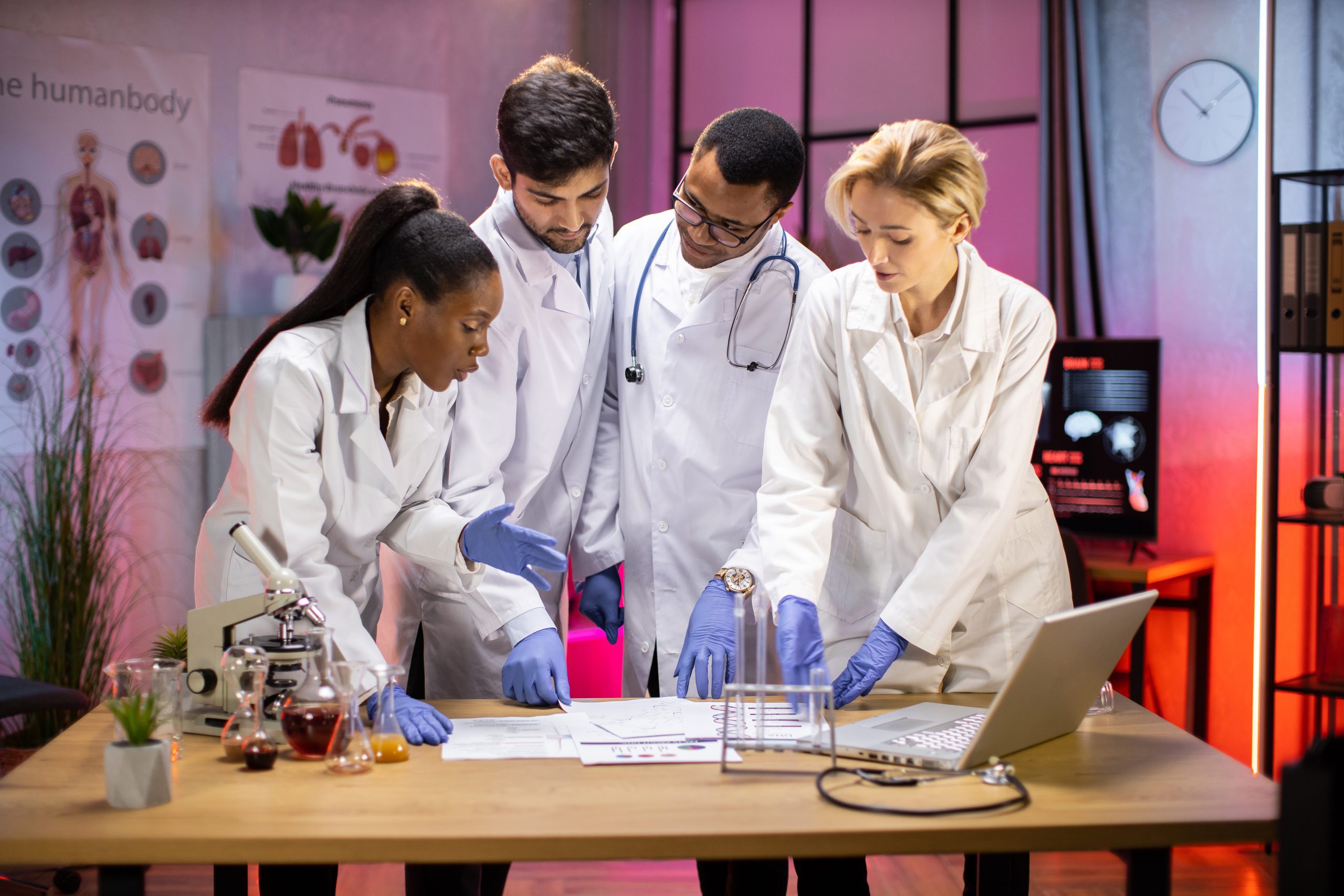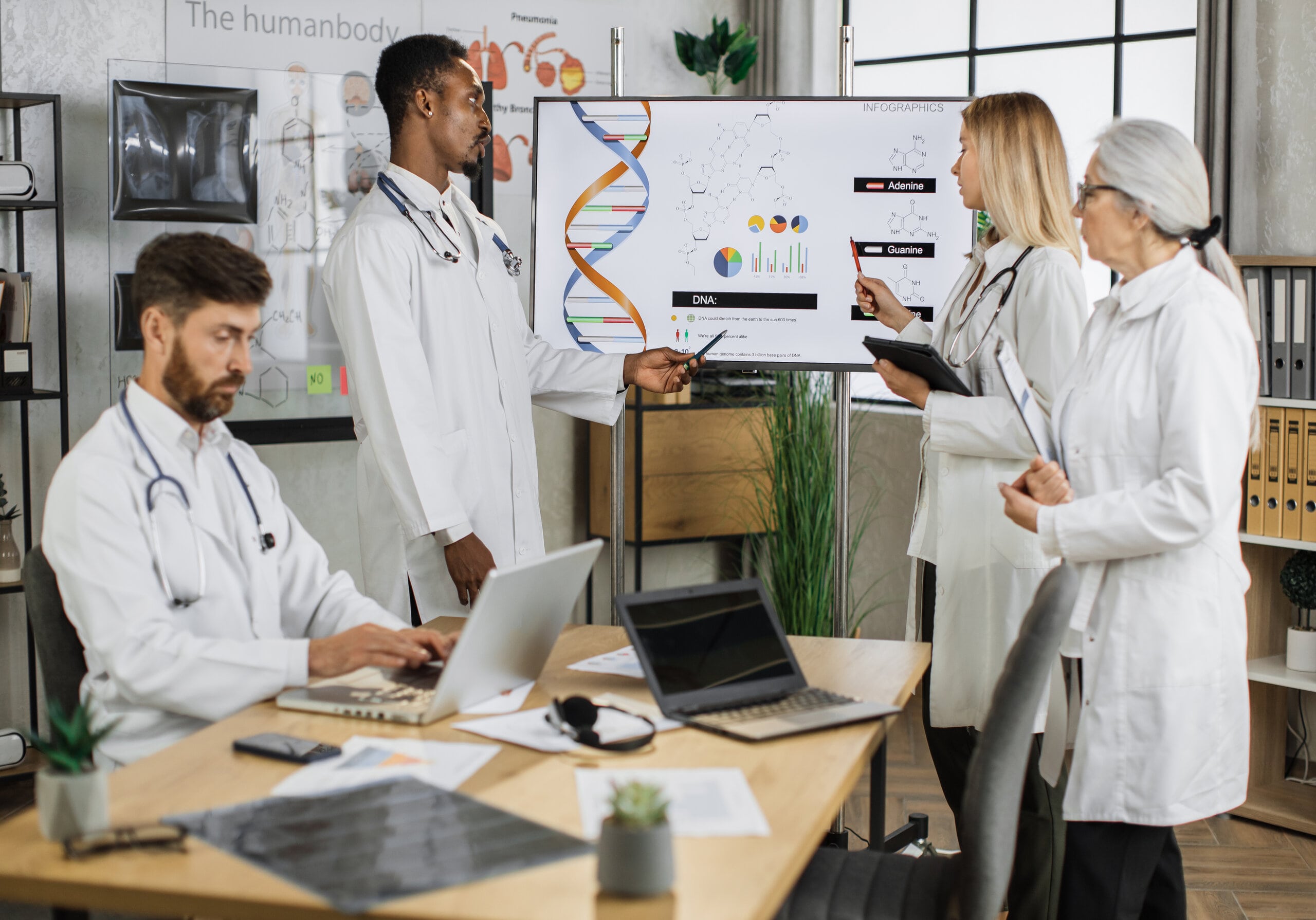Welcome to Open Learning College – Change your career, Increase your salary, and Improve your life.
 Course Overview
Course Overview
Embark on a transformative learning journey with the UK’s most innovative home study provider, offering courses designed to unlock your true potential and facilitate the career change you desire. Access our distance learning courses directly from anywhere, anytime, and acquire industry-recognised Professional Qualifications essential for advancing in your career.
Specifically, explore the flexible and convenient Clinical Science (Level 3) course, an ideal way to gain a diploma qualification. Whether you aim for further education, improved job prospects, or expanded knowledge, this comprehensive course allows you to prepare thoroughly for exams or careers through home study. Plus, it’s structured to be accessible and beneficial even if you have no prior knowledge in Clinical Science.
The Clinical Science course offers an unparalleled opportunity for individuals seeking to deepen their understanding of science and health. Designed for both newcomers and those eager to expand their knowledge base, this course provides a comprehensive exploration of the human body’s intricate organs and systems. Through a blend of theoretical learning and practical application, participants will gain invaluable clinical insights and skills essential for assessing, measuring, and understanding various biological tests.
The initial modules of the course focus on delving into the intricacies of the body’s systems, providing detailed insights into their functions, anatomical structures, and common conditions associated with each system. Participants will explore the physiological processes underlying these systems, equipping them with a solid foundation for further study and clinical practice.
As the course progresses, attention shifts towards specific aspects of clinical practice, fostering an integrated and holistic approach to healthcare. Drawing connections back to the body systems discussed earlier, participants will learn to apply their knowledge in real-world scenarios, gaining practical skills that are directly transferable to clinical settings.
Throughout the course, interactive activities and revision exercises are interspersed within modules to enhance learning outcomes and reinforce key concepts. These formative activities serve as valuable tools for self-assessment and clarification, ensuring participants grasp the material effectively.
Furthermore, each module includes a comprehensive glossary, providing learners with easy access to essential terminology and acting as a valuable reference throughout their academic and professional journey. This robust support system ensures that participants have the resources they need to succeed in their studies and beyond, empowering them to excel in the dynamic field of clinical science.
 Course Key Topics
Course Key Topics
the Clinical Science (Level 3) course is divided into 10 modules.
Module 1: Cardiovascular and circulatory systems
One of the key organs in the body that transports food and oxygen, removes wastes, maintains and regulates the internal environment via Homeostasis is the cardiovascular and circulatory system. A detailed look at the anatomy and physiology of this system, the heart and blood, is carried out and additionally, examples of common conditions and disorders such as; cardiovascular disease, leukaemia, anaemia, and other relevant conditions are given. The module will contain detailed images and diagrams to aid learning.
Module 2: Respiratory system
This module looks at the anatomy and physiology of the respiratory system and how humans respire – the mechanism about the way we breathe and exchange gases from the nose and mouth to the lungs, to be transported by the blood to every part of the body. Examples of common conditions and disorders such as carcinoma, tuberculosis, pleurisy, asthma, smoking and other relevant conditions, including detailed diagrams, comprehensive symptom description and treatment indications will be described in detail.
Module 3: Nervous and musculoskeletal systems
Something simple like blinking our eyes when we are awake or walking from bed as we get up require a complex set of movement and instruction from our brain and the Central Nervous system, CNS. This third module looks at the anatomy and physiology of the nervous and musculoskeletal systems, how our body is held up and protected and also how messages are passed around the nerves and synapses in the human body. First how bones are made and form a complex skeleton attached to various muscle groups using tendons and ligaments is studied. The more common conditions and disorders such as breaks and traumas, tumours, Alzheimer’s, arthritis, osteoporosis, and other relevant conditions, and possible treatment is investigated in depth.
Module 4: Gastrointestinal and endocrine systems
This section gives students the opportunity to explore the anatomy and physiology of the gastrointestinal and endocrine systems through detailed diagrams and comprehensive descriptions to explain what happens to the food we ingest, digestion and the waste that results. The role of enzymes and hormones is discussed, as well as examples of common conditions and disorders such as carcinoma, absorption, gastric ulceration, diabetes, Cirrhosis and glandular problems, and other relevant conditions with treatment their indications.
Module 5: Skin, reproductive and urinary systems, and special senses
This module looks at the anatomy and physiology of the skin, genetic reproductive and urinary systems. Detailed look at hair and nails, as well as the role of the skin as a protective and sense organ is carried out. How humans reproduce and have adapted to their environment follows, with a general look at the Kidney in filtration and production of urine. In addition examples of common conditions and disorders such as carcinoma, eczema, psoriasis, infertility, endometriosis, prostate problems, kidney disorders, and other relevant conditions are studied.
Part two
Within the second part of this course there is a significant amount of chemistry and biochemistry used to explain the detailed reactions that help the body function from respiration to detailed processes at the cellular level. This section links closely to the previous learning in part 1 of the course. Glossaries will be given with each topic so that students have a useful and accessible resource.
Module 6: Clinical pathology
In this module the focus is on the normal pathology or what makes the body ill or sick, which disease are the cause and how can it be attacked. Our body can be resilient; we can build resistance and immunity so how this is possible is investigated through microbiology. Detailed cellular composition, how our cells regenerate, where the energy comes from and how pathogens impact the body at its basic level is explored with particular emphasis on common diseases as well as recent epidemics such as with the Ebola and HIV-Aids virus.
Module 7: Clinical pharmacology
A key to fighting pathogens was through the development of chemicals to counter-attack them. Initially humans used plants and commonly found substances like salt and spices. The classification and grouping of drugs, and how drugs work and are administered is explored. Drug addiction and the processes behind this are also considered. Specific examples of drugs will be given, together with the correlating diseases they are used to treat; for example students will look at antibiotics, analgesics, chemotherapy and, e.g. the use of beta-blockers in treating hypertension and heart disease.
Module 8: Clinical immunology and epidemiology
The immune system is a collection of cells and chemicals that protect the body against harmful micro-organism. The basic structure and function of immunology, what it means in terms of disease, and prevention such as vaccination and inoculation, and also when we are immune-deficient is studied in depth. The way in which vaccines are made, the history of their development and how immunology is linked to epidemiology and predicting disease in the population will be covered.
Module 9: Nutrition and psychology
Nutrition is an important part of health, growth and wellbeing as it maintains and is maintained by homeostasis. We look at different food groups, the body’s requirements and the way in which food is used by the body to provide energy that runs the body systems, and to keep us well. Eating disorders, malnutrition and the psychological aspects of diet, exercise, relaxation, health and disease are explored.
Module 10: Clinical examination and diagnostic procedures
Skills are needed in effectively examining and treating a patient. A balance of professionalism is required alongside empathy and good communication. Knowledge of the systematic examination, both specifically and generally are addressed. This final module looks at some of the diagnostic procedures such as X-ray, blood tests, MRI scanning, ECG, and other significant and commonly used tests. Within this topic, specific examples where these tests are used such as for screening purposes are looked at. Some information is given in detail whilst other topics are covered briefly and can be researched further depending on interest and needs of the learner.
(Please click on the curriculum tab above to see a detailed view of each module)
Course Content
Clinical Science (Level 3) – FREE Starter Pack
How to…. (a series of explainer videos)
Module 1 – Cardiovascular and circulatory systems
Module 2 – Respiratory system
Module 3 – Nervous and musculoskeletal systems
Module 4 – Gastrointestinal and endocrine systems
Module 5 – Skin, reproductive and urinary systems, and special senses
Module 6 – Clinical pathology
Module 7 – Clinical pharmacology
Module 8 – Clinical immunology and epidemiology
Module 9 – Nutrition and psychology
Module 10 – Clinical examination and diagnostic procedures
Course Resources
Final Exam
College Announcements
🔍 Unlock the Wonders of Clinical Science with £50 OFF the Clinical Science (Level 3) Course! 🩺🔬
Are you ready to delve into the fascinating realm of clinical science? For a limited time only, we're excited to offer you an exclusive discount of £50 off our Clinical Science (Level 3) Course!
Simply use code CLINICAL50 at checkout before the offer expires!
👣 Why Choose Our Clinical Science Course
The Clinical Science (Level 3) Course, presented by Open Learning College, is your gateway to a comprehensive exploration of science and healthcare. With 10 informative modules, you'll dive deep into the intricacies of the human body's organs, systems, and functions, gaining invaluable clinical insights and skills along the way.
💪 What Makes Our Course Shine
Flexibility: Tailor your learning experience to suit your schedule, with 24/7 access to course materials.
Expert Guidance: Benefit from the support and expertise of our experienced tutors throughout your learning journey.
Practical Applications: Gain real-world insights and practical skills essential for success in the field of clinical science.
Don't miss out on this chance to unlock the secrets of clinical science at a discounted rate! Enrol now, use code CLINICAL50* at checkout, and embark on your journey towards a rewarding career in healthcare. 🌟🧬
*This discount code cannot be used in conjunction with any other offer.









 Get Social!
Get Social!











Daniel Wilson.